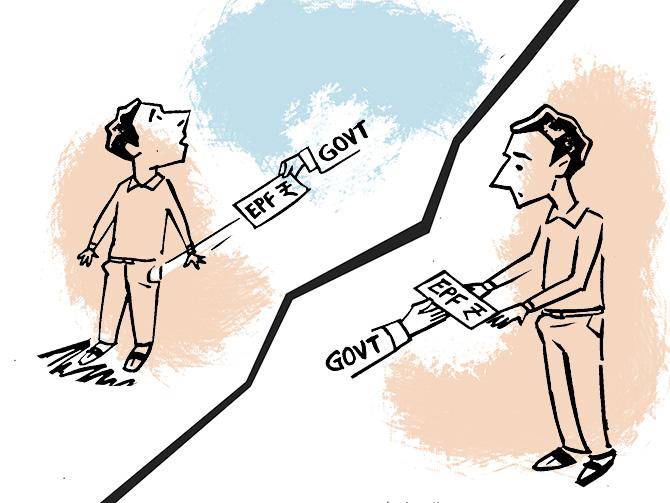There is widening gap between what the government’s premier retirement fund makes on its investments and what it offers to employees.

The Employees’ Provident Fund Organisation (EPFO) makes the bulk of its investments in government-related securities.
In other words, it lends to central and state governments and related entities.
The interest it gets from these instruments is largely what it uses to pay interest to its subscribers.
The interest on government borrowings has been coming down.
This has meant that the gap between what the EPFO makes and what it pays out may have widened to levels not seen for over a decade.
The analysis used the 10-year government bond yield as a proxy indicative of the EPFO’s investment returns over the long term.
This was compared to the EPFO’s offered interest rate over the past 20 years.
##The EPFO’s latest annual report shows that it has over Rs 14.4 trillion invested in various instruments largely related to the government.
These include central government securities, state development loans, state government securities, and others.
These excludes some investments in exchange-traded funds (ETFs), which provide equity exposure.
The EPFO offered 8.75 per cent interest to its subscribers in 2013-14 (FY14).
The 10-year government bond yield at the end of FY14 was 8.8 per cent.
The government bond yield has since fallen to 6.2 per cent as of 2020-21 (FY21). The EPFO’s offered interest rate has not declined accordingly. It was at 8.5 per cent for FY21.
The body is reportedly set to decide on the offered interest rate for 2021-22.
The equity exposure is smaller. The EPFO annual report, which provides ETF holdings at cost price, pegs it at Rs 1.2 trillion.
The selling of some holdings had helped meet obligations earlier.
“...ETF units were redeemed for booking profits/capital gains twice after taking due approval from the competent authority.
"ETF units pertaining to calendar year 2016 were redeemed from October 19, 2020, to November 9, 2020, thereby generating a capital gain of Rs 3,277.16 crore. ETF units pertaining to the first two quarters of calendar year 2017 were redeemed from March 12, 2021, to March 30, 2021, thereby generating a capital gain of Rs 4,072.83 crore.
"The above capital gains were utilised for declaration of the rate of interest,” said EPFO’s latest annual report.
Higher equity holdings are a good way to increase long-term return, according to a January 2017 study entitled ‘Delta Gains of Investment in Stocks on Financial Performance of Self-Managed Provident Funds in India’ from authors Tanesh Bhattacharya and Anupam Rastogi, published in the NMIMS Journal of Economics and Public Policy.
“...we found that with 15 per cent exposure to stocks, the self-managed provident fund corpus would have grown 5.18 per cent more than the mandatory EPFO returns, and with 20 per cent exposure to stocks, the corpus would have grown by 10.35 per cent more than the mandatory EPFO returns between 2004-05 and 2013-14, notwithstanding two severe corrections in the stock market,” it said.
The nature of the equity holdings may play a role in eventual returns.
The EPFO’s annual report also had details on the annualised returns on ETF investments, which mimic the S&P BSE Sensex and the Nifty50 indices.
They gave between 10 per cent and 15 per cent returns.
Returns on the central public sector enterprise (CPSE) ETF and the Bharat 22 ETF, both of which the government uses to divest public sector stocks, have been lower.
The return since launch is 7.37 per cent for CPSE ETF, according to mutual fund tracker Value Research India. It is 5.23 per cent for Bharat 22 ETF.











